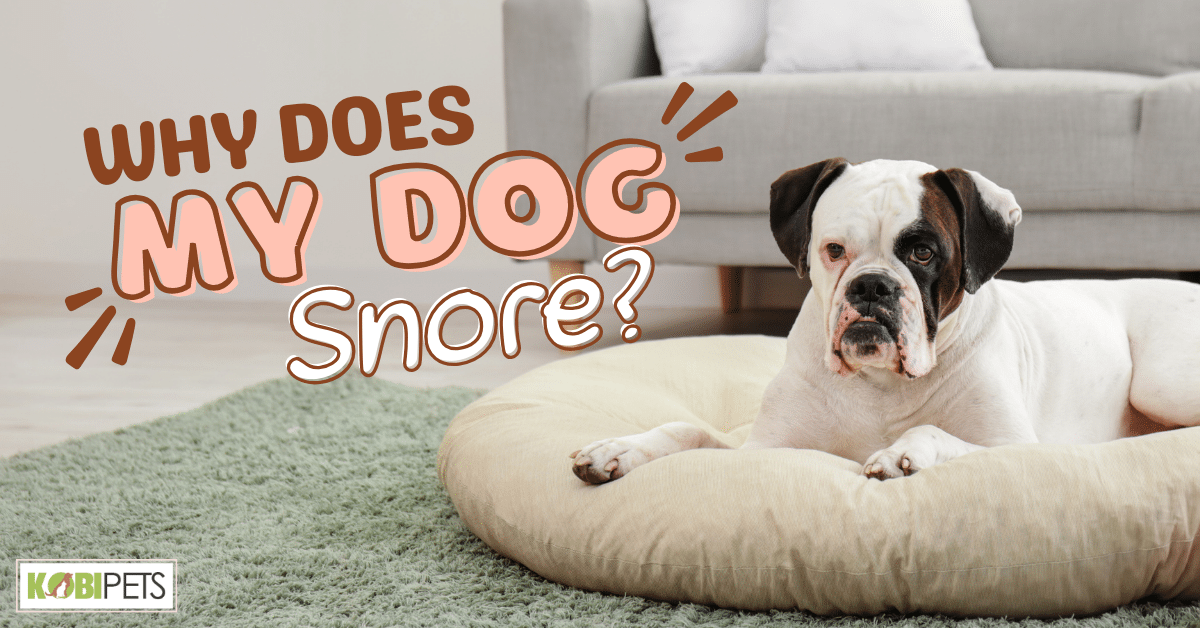
Dogs, much like humans, snore when airflow is partially blocked during sleep, often due to the relaxation of soft tissue in the throat. Common reasons include their sleeping position, obesity, allergies, or even certain breeds being predisposed due to facial anatomy. Regular check-ups and monitoring for excessive or unusual snoring patterns can help ensure your furry friend’s health and comfort.
As a dog owner, you’ve likely noticed your furry companion’s occasional snoring. While it may seem harmless or even endearing, dog snoring can offer valuable insights into your pet’s well-being. In this article, we’ll explore the reasons behind dog snoring and shed light on its significance. From the anatomy of a dog’s throat to common causes and remedies, we’ll uncover the secrets of your dog’s nocturnal soundscape, ensuring a happier and healthier sleep for your four-legged friend.
The Anatomy of a Dog’s Throat
Dogs possess a throat anatomy distinct from humans, primarily due to the presence of a laryngeal saccule, a vocalization-related structure. Their narrower and elongated pharynx sets the stage for potential snoring issues during sleep.
During slumber, a dog’s soft palate and uvula can relax, partially obstructing the airway and causing snoring vibrations. Throat muscles usually work to maintain the airway’s shape but may become less effective in deep sleep or certain breeds, amplifying snoring.
Certain dog breeds, like bulldogs or pugs, often exhibit snoring tendencies due to their facial structure, which includes compressed nasal passages and elongated palates. These breed-specific characteristics can limit airflow, necessitating special attention to ensure these pets sleep comfortably.
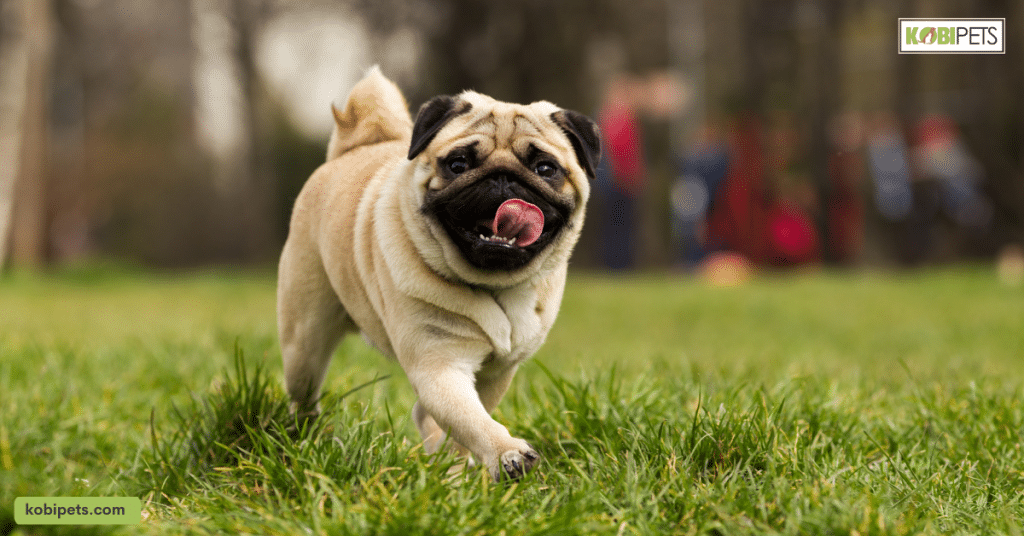
Common Causes of Dog Snoring
Dog snoring is a common occurrence that can range from charming to disruptive. Understanding the underlying causes of your canine companion’s snoring can help you address the issue effectively and ensure both you and your pet get a peaceful night’s sleep. In this section, we’ll explore the common factors that lead to dog snoring and provide insights into how to manage or prevent it.
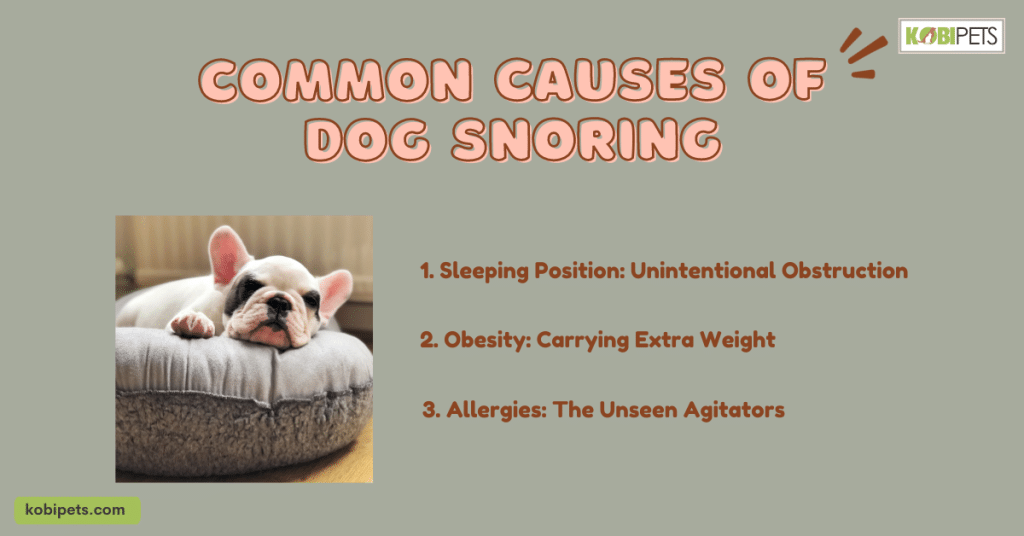
Common Causes of Dog Snoring
1. Sleeping Position: Unintentional Obstruction
Your dog’s sleeping position can play a significant role in their snoring tendencies. Just like humans, dogs can end up in positions that inadvertently partially obstruct their airways. For instance, when a dog sleeps with its head extended forward, the airflow through their throat can become turbulent, causing snoring. We’ll discuss various sleeping postures and how each can contribute to those endearing, albeit noisy, snores.
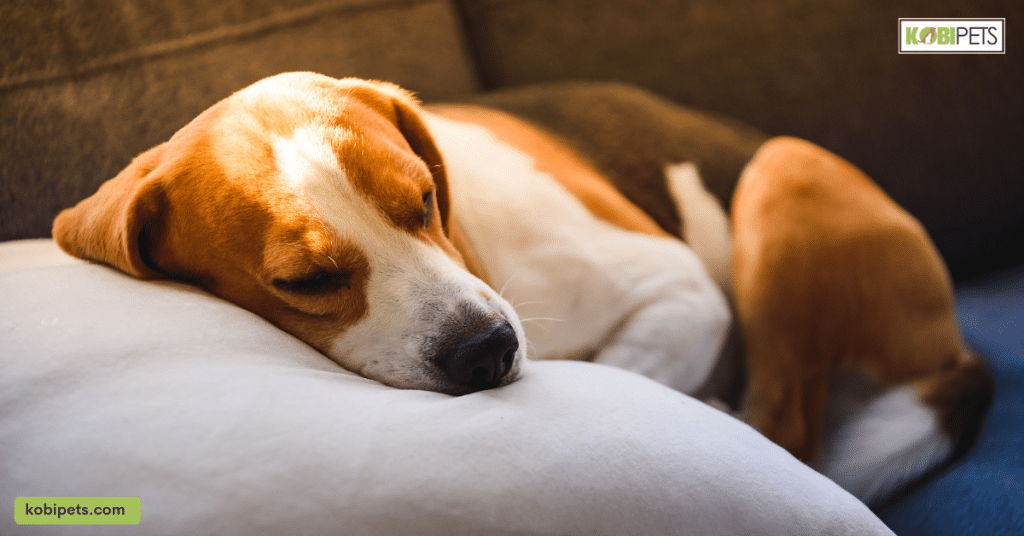
2. Obesity: Carrying Extra Weight
Obesity is another prevalent cause of dog snoring. When dogs are overweight, they tend to accumulate fatty tissues not only around their bodies but also in their throat. This extra tissue can narrow the air passage and result in snoring. We’ll explore the relationship between weight management and quieter nights for both you and your pet, offering tips on diet and exercise to help keep your dog at a healthy weight.
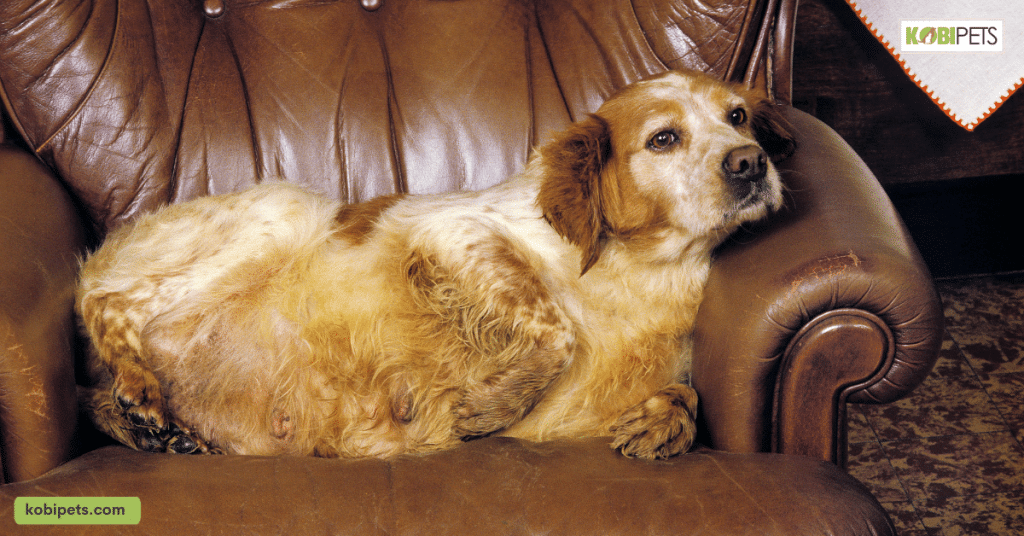
3. Allergies: The Unseen Agitators
Allergies, whether they’re triggered by pollen, dust, or other environmental factors, can also be culprits behind dog snoring. Allergic reactions can lead to nasal congestion and throat inflammation in dogs, which in turn can increase snoring episodes. We’ll delve into identifying common allergens, recognizing allergy symptoms in your pet, and how to manage allergies effectively to ensure restful sleep for both you and your dog.
Understanding the common causes of dog snoring is the first step toward a more peaceful night’s sleep for you and your beloved canine companion. From sleeping positions to weight management and allergies, these factors can significantly influence snoring patterns. By addressing these issues, you can help your dog sleep more comfortably and enjoy quieter nights for yourself as well.
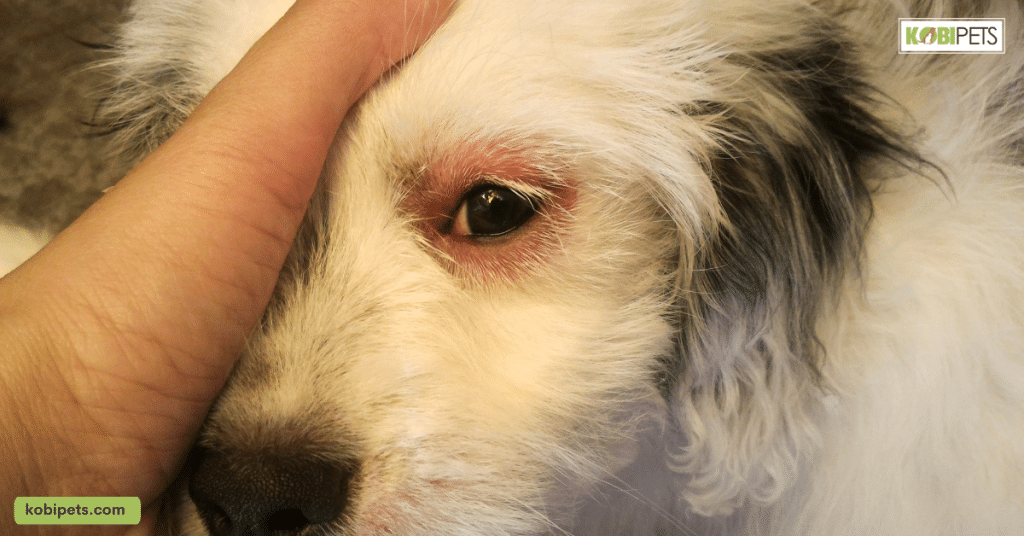
Breeds Prone to Snoring
Among these traits is the propensity to snore, a feature that can vary widely from one breed to another. In this section, we’ll shine a spotlight on specific dog breeds known to be more prone to snoring due to their distinctive facial structures and anatomical features. Understanding why certain breeds are predisposed to snoring can provide valuable insights into your pet’s nighttime symphonies.
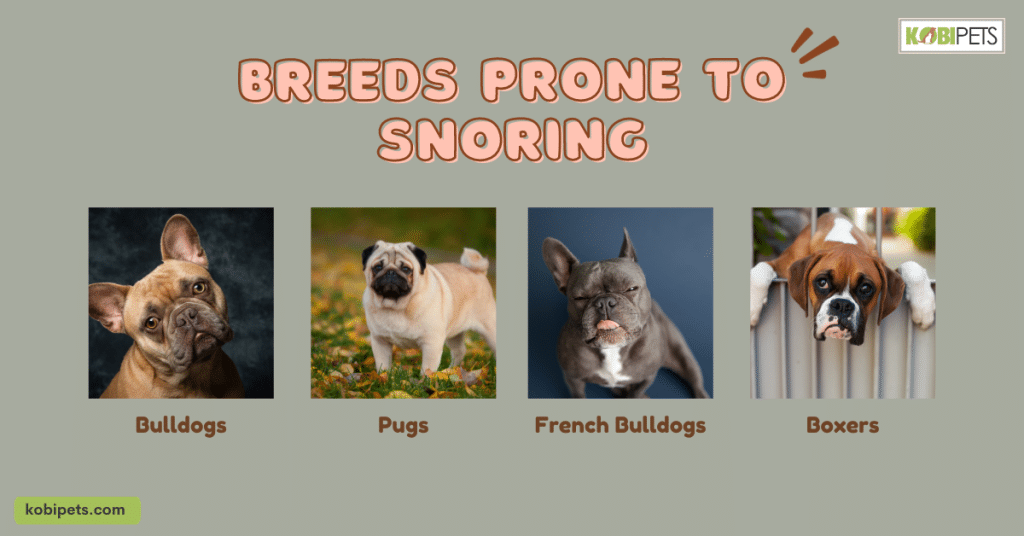
Breeds Prone to Snoring
- Bulldogs: With their adorable wrinkled faces and short noses, bulldogs are often associated with snoring. Their brachycephalic (short-headed) skull structure can lead to airway restrictions, making snoring common among them.
- Pugs: Pugs, known for their charming wrinkled expressions and compact size, are another breed prone to snoring. Their flattened faces and narrow nostrils can contribute to noisy slumbers.
- French Bulldogs: Sharing similarities with bulldogs, French bulldogs possess a brachycephalic skull and are more susceptible to snoring due to their facial structure.
- Boxers: Boxers, with their muscular build and square-shaped heads, are also known for their snoring tendencies, often related to their unique facial anatomy.
Understanding why these breeds are predisposed to snoring involves examining their facial structures, including shortened muzzles, soft palates, and elongated palates. These features can result in partial airway obstructions during sleep, leading to the snoring sounds that are characteristic of these breeds.
When to Be Concerned
As a responsible dog owner, it’s vital to know when to consider your dog’s snoring as a potential health concern. While occasional snoring during deep sleep or unusual positions is generally harmless, chronic, loud snoring may indicate underlying health issues.
If you observe persistent, disruptive snoring accompanied by symptoms like fatigue, restlessness, or labored breathing during the day, it’s essential to consult your veterinarian promptly.
Regular monitoring and prompt attention to changes in your dog’s snoring habits can ensure their well-being and lead to appropriate treatments or adjustments for a more peaceful slumber.
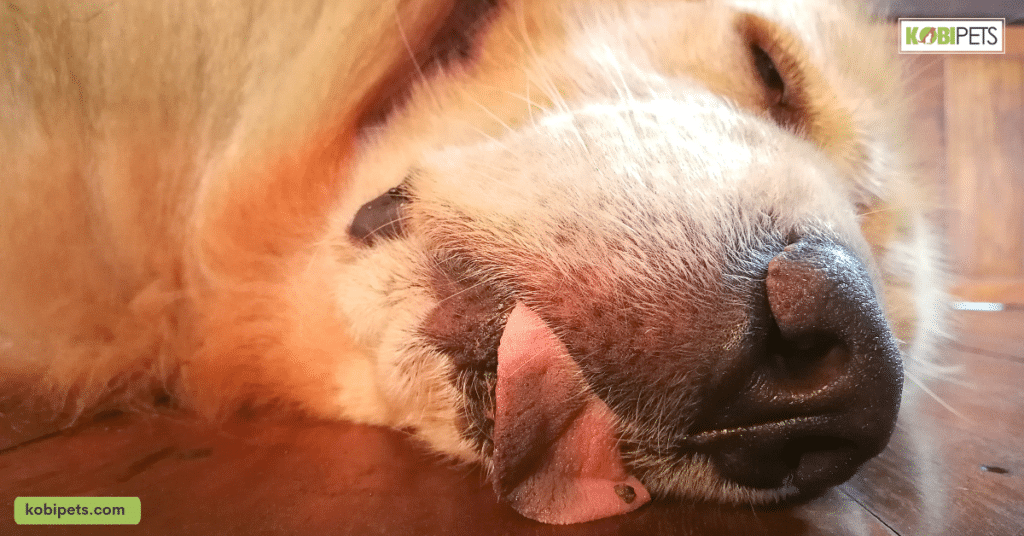
Tips and Remedies
If you’ve ever been kept awake by your snoring dog or worried about their nighttime symphonies, you’re not alone. Fortunately, there are practical tips and remedies that can help alleviate dog snoring and ensure both you and your furry friend enjoy a peaceful night’s sleep. In this section, we’ll explore various approaches, from simple lifestyle adjustments to home remedies, aimed at making your dog’s slumber more serene.
Here’s a concise table of practical tips and remedies to address dog snoring:
| Tip/Remedy | Description |
|---|---|
| Adjust Sleeping Positions | Experiment with different sleeping positions for your dog to find the one that minimizes snoring. |
| Weight Management | Help your dog maintain a healthy weight through proper diet and regular exercise to reduce snoring caused by obesity. |
| Elevate the Head | Elevating your dog’s head slightly during sleep can help keep airways open and reduce snoring. |
| Allergen Control | Manage allergens in your dog’s environment to alleviate snoring triggered by allergies. |
| Humidifiers | Use a humidifier in your dog’s sleeping area to keep the air moist, which can reduce snoring. |
| Change Bedding | Opt for hypoallergenic bedding materials to minimize allergen buildup and potential snoring triggers. |
| Nasal Strips | Consider nasal strips designed for dogs to help improve airflow through the nasal passages. |
| Veterinary Consultation | Consult your veterinarian if snoring persists or worsens, as it may indicate an underlying health issue. |
Implementing these practical tips and remedies can make a significant difference in reducing your dog’s snoring, leading to quieter nights and improved sleep quality for both you and your beloved pet. Remember that every dog is unique, so it may take some trial and error to find the most effective solutions for your specific situation.
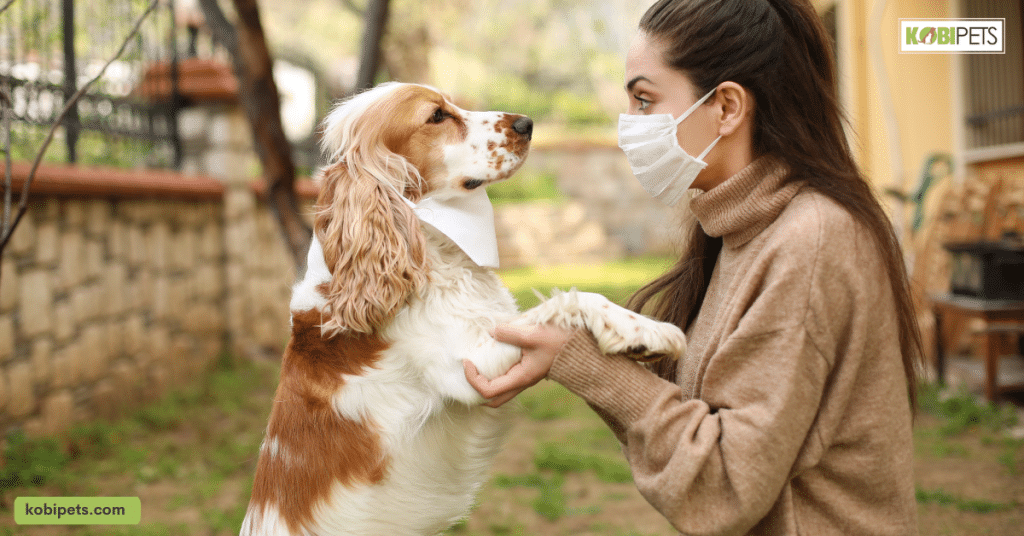
Conclusion
Implementing these practical tips and remedies can significantly reduce your dog’s snoring, leading to quieter nights and improved sleep for both you and your beloved pet. Remember that every dog is unique, so some experimentation may be needed to find the most effective solutions.
If snoring persists or worsens, consulting your veterinarian is essential for your dog’s overall well-being. With these strategies and professional guidance, you can help your dog enjoy peaceful sleep, contributing to their health and happiness.






